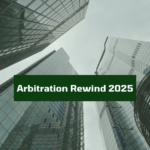Delhi High Court: Directors cannot be made parties to the arbitration proceedings against the company through the group of companies doctrine

The Delhi High Court in its recent decision of Vingro Developers Pvt. Ltd. v. Nitya Shree Developers Pvt. Ltd. held that the directors of a company cannot be made parties to the arbitration proceedings against the company under the group of companies doctrine.
While distinguishing the facts of the matter from the recent Supreme Court ruling of Cox & Kings v. SAP India, the Ld. Single Judge held that merely because a director signs a contract on behalf of the company, it does not confer ‘common intention’ to bind the said director as a signatory. The Ld. Single judge referred to the provisions of agency under the Indian Contract Act which specifically denote that an agent of a disclosed principal cannot be made liable for the acts of its principal to hold that the group of companies doctrine cannot be applied in the sad situation.
The information contained in this document is not legal advice or legal opinion. The contents recorded in the said document are for informational purposes only and should not be used for commercial purposes. Acuity Law LLP disclaims all liability to any person for any loss or damage caused by errors or omissions, whether arising from negligence, accident, or any other cause.



